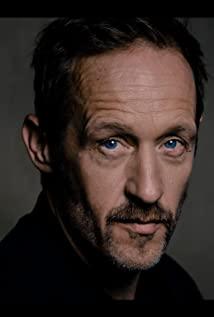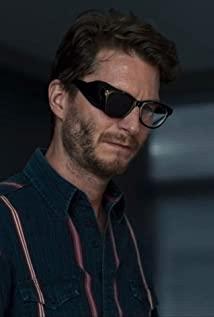The reason why many literary works are excellent is that the author's insight is like a bloodthirsty knife, which precedes the thinking and judgment of even generations, rather than magnificent ornate words, techniques, and structures. Darkness is like that. It must not be a show you can finish in one night.
Diablo tells us that a good drama or a good movie is not to make you not understand, but to make you feel confused first, then let you fall into it, and finally let you understand thoroughly and even deeply about it. Insight is terrified, helpless and hopeless at the thought it provokes.
This is darkness. This show represents as far as I can think in 2020.
(Some of the following content I have repeated in the evaluation of the creed).
A lot of people say that Diablo is the Blade Runner of the year, and I totally agree - we're all just 1982 viewers. Diablo will become a classic. Darkness is the most complete thinking about traveling through time that I have seen now. Apart from some basic physical concepts, it completely rises to the height of thinking about the meaning of time and the meaning of human will. Most shockingly, it simulates the sad human ethic of what humans would do if they were in control of time. Bottom line: they just make everything messier, worse, and change nothing. As we who live in linear time see the opportunity to travel through time and space, we must think over and over again: "What if I went back in time and chose to do this instead of that?" and then yearn over and over again. At a certain point, to change a certain behavior of yourself or someone else. This is the saddest part of human beings: always thinking that they can change something. I always thought that humans and God just lost in the information difference. Diablo will tell you what will happen through Nietzsche, Schopenhauer and Schrödinger's cat mouth... It quotes the thinking of many sages, and completely restores abstract things to the small human society. Here, there are normal linear time, normal families, and abnormal transmigrators, and even people who want to be gods who grew up from normal people. Here you will see quantum mechanics and relativity at the same time, Dawkins ("The Selfish Gene"), Asimov ("The End of Eternity"), Buddhism (liberation), Existentialism, Deconstruction... Philosophers What kind of life will people in the eyes of; if human beings have everything, what will they be used for. These restorations simulate all utopias imaginable by human beings, and then smash them all. How much hope you once had for mankind, how much despair you have at the end of the play.
In fact, this kind of despair Dawkins has already mentioned from a biological point of view. The fact that humans are manipulative tools (Dawkins thinks is genetics) cannot be changed. All the rules have been set in advance, you are only a result of the rules, there is nothing you can do. You may feel hopeless, but you don't need to, because you can't change anything. "Immutability" (non-fatalism and determinism) is one of the central issues that such films want to discuss, that is, thinking about the meaning of human free will. Traveling through time and space is just a good introduction. After all, the tragedy must return to human beings: whether thinking can break through restrictions, whether the struggle is meaningful, whether human beings can truly progress and develop... The result of changing the past through time and space is only the development of human beings. One consequence, it brings us to a fundamental question: Can human beings really be cyclically ascending "forward"?
In closed-loop time, each of your actions has a causal relationship with the result. The future is the cause, the past is the effect. A person trying to change the past, influencing the past with factors from the future, will only accelerate what happened in the past. This also shows that what happened to you in the past is the result of the cause and effect you planted in the future. Diablo spent three seasons, and even two parallel universes, to show us what happens to a group of people living in the same town, trying time and time again to change the past and the future, and what happens when people try to change a behavior again and again, What will happen if people try to move every piece in the closed loop of space-time even if they have the perspective of God. As a result, nothing happens. Schopenhauer said that people can decide what they want to do, but they can never control what they want. You don't even know whether your changing the past represents your free will or not; are you a pawn, a puppet, or a human being.
Nolan made a mistake in the creed: what we've seen so far, it's a human tragedy. However, Nolan was deeply immersed in the concept of physics and could not return to people. Diablo's greatest success is also because it points out that all this is a tragedy of human nature. Time travel is just an introduction, just a trigger point. We are always looking for the origin without knowing it, and the search itself is meaningless. It's not that the direction is wrong, but that this behavior cannot be realized, which is a paradox.
Darkness makes many philosophies, religious philosophies, literature and modern science reach the limit coincidentally. This makes people happy, but also terrifying: does this once again illustrate the unbreakable nature of human limitations? We keep coming up with the same theory; no matter what we say, the core behind it is always the same; we can't understand that core and even feel like we create diversity. Just like all living things are differentiated from a set of source genes, our so-called complex thoughts and different theories are nothing more than our own differentiation. In the darkness, no matter how many parallel universes are differentiated, you cannot escape the universes at that level, you cannot understand the existence of the source, and you are spinning in your own cycle all your life. This coincides with the Six Paths in Buddhist philosophy. To borrow its words: The ultimate goal of cultivation is not to reincarnate in the next life and continue to reincarnate in the chaos of the Six Paths, but to escape from the Six Paths, escape from the illusion, and return to the source world. And what does the source world look like? At least it's what the creatures in the six realms can never imagine and understand: even if you say it, you can't understand it.
To put it another way: Deconstructionism believes that the world that humans see is the world after they have transformed the natural world into a world they can understand. That is, the world is constructed. Not only that, but humans have created a lot of things to understand the world: language, rules, beliefs, ideas, etc., and even believe that they are created according to the source of natural laws. When Tian Xiguang talked about quantum mechanics, he also said that all formulas are the reactions of natural laws in the human brain, not their real appearance. Just as the three-dimensional world that people see is just a two-dimensional projection on the retina, and all physics are similar to such projections, even more dimensionally reduced. This is what he said when he pointed out that quantum mechanics is more enlightening than knowledge. Looking at darkness from this angle, it is not difficult to see its greatest value: inspiring people to think at the moment. No matter what you think, it is great to try to wake up in the Matrix. No matter how self-righteous a human being, you can feel his tragicness and it is shocking.
The ultimate goal of human beings may not be to break or change, but to feel and experience. These tragedies, these beauty and despair, these shocks, are Liudao's gifts to you. Ignorance is God's weapon for you. Of course, this is just human thinking about space and time in 2020. There is no truth and it cannot define anything. Whether human beings are going farther and farther on the road of exploring the truth, or whether they are getting deeper and deeper into the manipulated situation, may really not be understandable to us.
View more about Deja-vu reviews











